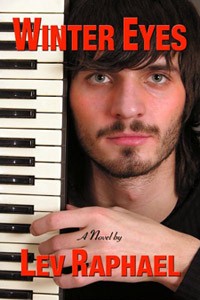Back in the eighties, I landed a major New York agent and felt I was truly launched as an author. Up to that point, I had only one fiction publication: a short story in Redbook which had won a prize at my MFA program, made me a lot of money, and garnered fan mail. The judge of the contest was Martha Foley who had been editing the yearly anthology Best American Short Stories, and Redbook had an audience of 4.5 million readers.
The agent took me to lunch at a classy restaurant, told me she loved my novel and that my short fiction was ready for The New Yorker. I was blown away.
Her outer office was filled with copies of books in many languages by her major client, bookcase after bookcase trumpeting his fame and her connection to him. Having this woman as my agent made life seem golden. And yes, I admit it: I assumed that sooner or later I would meet the international celebrity, or at the very least get a blurb for my novel Winter Eyes about Holocaust survivors trying to start a new life in New York.
What happened next was like a bad love affair: my agent never wrote or called to keep me up-to-date—what had I done wrong? She never sent me copies of rejection letters from editors, so I had no idea where the book had been submitted. The only actual feedback she shared was that an editor at Knopf thought my novel was “too short.” She also rarely answered my queries or returned my phone calls, and after a year and half of this bizarre treatment, I gave up, ending the relationship by registered mail.
It turns out that I was actually lucky to drop this agent before she sold my book. In the 90s, she was accused of not passing on royalty checks to her clients who included a handful of major literary authors.
Un-agented, that first novel of mine ended up being accepted by St. Martin’s Press and I had fantastic editing and copy-editing there. Though I did go on to work with other agents, some of whom were duds in different ways, my first agent won the prize for most unprofessional. Ironically, over the years, the books that have earned me the most money were books I sold myself.
I guess I should have seen that first experience as an omen.
Lev Raphael is the author of Rosedale in Love, A Novel of the Gilded Age, and 25 other books in genres from memoir to mystery. He teaches creative writing workshops year-round at writewithoutborders.com.


![Let's Get Criminal (A Nick Hoffman / Academic Mystery Book 1) by [Raphael, Lev]](https://images-na.ssl-images-amazon.com/images/I/51XBc67CaNL._SY346_.jpg)
![Winter Eyes (coming out novel) by [Raphael, Lev]](https://images-na.ssl-images-amazon.com/images/I/51mddPEIgGL.jpg)

